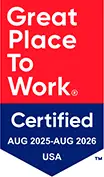Mouthwatering news: DOT makes minor revisions to saliva-drug testing rule
June 26, 2024
The U.S. Department of Transportation (DOT) published two final rules to revise DOT testing regulations:
- Oral-fluid (saliva) drug testing procedures and collector training.
- Technical corrections to 49 CFR Part 40.
Both final rules appeared in the Federal Register on June 21, 2024.
The rule on oral-fluid testing is a direct final rule with an effective date of August 5, 2024. If the DOT receives adverse comments about the rule, the rule will be withdrawn and not take effect. Stakeholders have until July 22, 2024, to offer input. The technical corrections were published as a final rule and became effective June 21, 2024.
Oral-fluid collector training
When the DOT published its oral-fluid drug testing rule (40.35) in May 2023, the qualifications for collectors mirrored the qualifications for urine collector training. This included basic information, qualification training, initial proficiency demonstration, refresher training, error correction training, and documentation. However, the DOT inadvertently created a “factual impossibility” for those who must monitor mock oral-fluid drug collections as specified in 40.35(c).
A qualified oral-fluid collector must possess necessary knowledge, skills, and abilities demonstrated through:
- Regularly conducting DOT drug test collections for a period of at least one year,
- Conducting collector training under Part 40 for at least one year, or
- Successfully completing a “train the trainer” course.
Since the oral-fluid drug testing option has not been in effect for a year or more, there are no qualified collectors with a year of experience to meet the above qualifications; thus the factual impossibility.
Once labs become certified by the Department of Human and Health Services (HHS) for oral-fluid testing, the DOT realizes there will be no existing qualified oral-fluid collectors with the additional qualifications in 40.35 to monitor and evaluate a trainee’s mock collections.
To correct this dilemma, the DOT amended the regulation to require those observing mock collections to have the knowledge, skills, and abilities, but they don’t need to be a qualified oral-fluid collector.
The DOT expects those monitoring mock collections to have a thorough understanding of Part 40 and to be well versed in the course content they are teaching. The course content must meet the requirements in 40.35(b), and individuals conducting training should maintain good records, including:
- The course content for the instructor and student,
- The duration of the training,
- The dates the course was taught,
- The names of those who attended the course, and
- Any certificate of successful completion provided to students.
This is no different than what would be expected of those conducting urine collection training today.
This regulatory relief will be in effect one year after the HHS notification until otherwise specified.
Employee privacy
The DOT inadvertently omitted provisions allowing for privacy during oral-fluid drug testing. When the oral-fluid drug testing rule was published, the DOT intended the collection procedures to parallel alcohol testing procedures.
To correct the omission, the DOT added a new paragraph to 40.73 instructing the oral-fluid collector not to allow anyone other than the collector, the employee being tested, or a DOT agency representative to witness the testing process.
Sufficient volume
The regulations require the oral-fluid collector to ensure that a sufficient specimen volume is collected. The DOT provided additional details in the direct final rule on how a collector verifies that sufficient volume is collected. New verbiage in 40.73(c)(2) requires collectors to check the “volume indicator(s) observed” box in Step 2 of the chain of custody form (CCF).
Technical corrections
It is not uncommon for the DOT to make technical amendments to the regulations when minor corrections are needed. Since the DOT published its final rule in May 2023, certain provisions and omissions came to the department’s attention that required editing and have since been updated.
June 26, 2024
Author{not populated}
TypeIndustry News
IndustriesTransportation
Related TopicsDrug and Alcohol Testing - DOT
Governing BodiesOffice of the Secretary of Transportation
Citationsr49CFR40.35","r49CFR40


